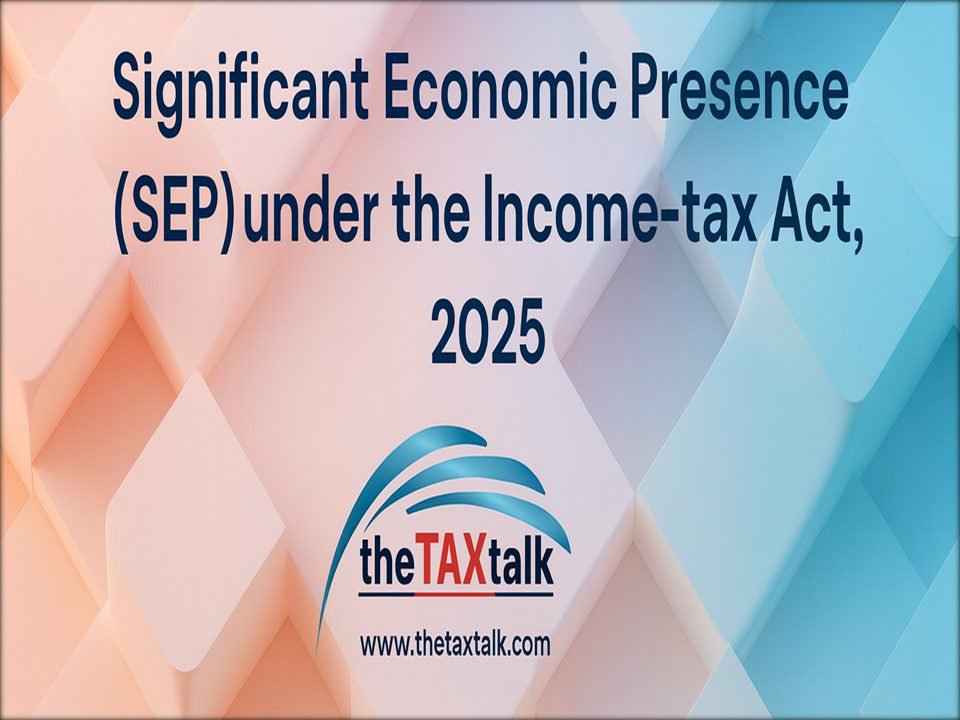![]()
Significant Economic Presence (SEP) under the Income-tax Act, 2025
Introduction:
1. The concept of Significant Economic Presence (SEP) is contained in Section 9 of the Income-tax Act, 2025, which takes effect from 1st April 2026.
2. This provision determines when the income of a non-resident shall be deemed to accrue or arise in India on account of a digital or economic nexus, even without physical presence.
A non-resident shall have a Significant Economic Presence in India in either of the following situations:
1. Transaction-based nexus:
When the non-resident carries out any transaction in respect of goods, services or property with any person in India, including provision or download of data or software in India, and the aggregate of payments arising from such transactions during the year exceeds the prescribed threshold; or
2. User-based nexus:
When the non-resident systematically and continuously solicits business activities or interacts with prescribed number of users in India through digital means.
Nature of the Provision
1. SEP is a deeming provision that creates a taxable nexus even without a physical presence or a fixed place of business in India.
2. It represents India’s assertion of source-based taxation rights over the digital economy.
3. The specific monetary and user thresholds are to be prescribed by the Central Government, as in the earlier regime (these are yet to be notified under the new Act).
Attribution of Income
1. Only the income reasonably attributable to such SEP operations shall be deemed to accrue or arise in India.
2. This includes income arising from:
Online advertisements targeting Indian users or using Indian IP addresses;
3. Sale of data collected from persons residing in India or using Indian IP addresses; and
4. Sale of goods or services using such data.
Key Features:
1. No physical presence required: SEP establishes taxable nexus through economic or digital presence alone.
2. Digital economy coverage: Targets cross-border e-commerce, streaming, advertising, cloud, and data monetisation models.
Summary:
1. The substantive principle remains the same as under the old Act, but the drafting enhances clarity, enforceability, and legislative coherence.
2. It marks India’s continued commitment to taxing the digital and data-driven economy on a source basis.


